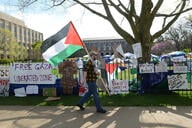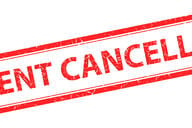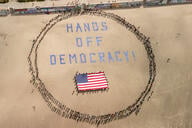You have /5 articles left.
Sign up for a free account or log in.
COMBAT OUTPOST CASHE, Iraq -- Like many highly selective and wealthy colleges, Yale University, where I earned an M.B.A., has a relationship that is uneasy at best with the military. As the Yale community continues to debate whether to reestablish a Reserve Officers Training Corps program on the campus -- a conversation that is unfolding to varying degrees at other colleges and universities -- I thought my perspective might be helpful.
I am a Yale graduate deployed on a 15-month tour to Iraq, where I lead over 700 soldiers. I have spent three of the last five years in Iraq. Like many deployed units, my soldiers and I work to secure the populace, transition and train Iraqi Security Forces, build civil capacity and economic development, and work tirelessly in a dangerous, complex and tough environment.
As a leader, I must draw upon my ability to work with others, think and ultimately make decisions that are ethical, sound and appropriate to the totality of the situation. Every day I make choices, prioritize and lead in a way that is both informed and shaped by my collective experiences.
I was not part of a military family. I was born in El Paso, Texas. My father delivered milk and my mother worked at home. I have known my wife since kindergarten and together we move frequently, make fast friends and enjoy living in diverse communities worldwide. I bring to my profession the values, humility and work ethic of my family.
Similarly, I benefit from two very different yet enriching educational backgrounds: West Point, where I studied aerospace engineering, and Yale, where I earned an M.B.A. from the School of Management. The experience was life-changing. I rowed crew, took several courses at the law school and immersed myself in all that makes Yale special.
Not only did I acquire leadership insight and management skills that I use almost daily, but I was exposed to different ideas, I was encouraged to think more broadly and I gained a close cohort of lifelong friends who see the world from different perspectives. Yale gave me balance and has had a profound impact on how I learn, listen and lead.
Today, I not only plan and direct military operations and care for my soldiers and their families; I also work to improve conditions for the people of this war-torn country. I understand the potentially global implications of the actions of even the youngest soldier in my Task Force, and I frequently discuss with my forces the moral imperative to follow the Laws of Armed Conflict and the Geneva Conventions, and to do the right thing even when the enemy chooses the opposite path.
My leaders and I set a command climate that limits force and seeks alternatives to disputes in a region that is quick to solve problems with a gun. Ironically, we all carry guns. I don’t pretend to be the Peace Corps, but my point is that the War Corps is not necessarily as blunt an instrument as perceived by some with limited interaction and understanding of the military that serves our society. The civil-military gap is growing.
Our nation needs and has historically had a professional and effective military, but at any point in time we only have the military we resource. As a Yalie in combat, I follow the discussions about ROTC at Yale online through the News, and, perhaps unsurprisingly, I support the more inclusive option of allowing students access to military training at Yale.
Many oppose such a move because it signals an acceptance of policies they cannot condone. It may be the notion that armed conflict is immoral or inhumane. Alternatively, opposition could stem from the nation’s “don’t ask, don’t tell” policy or our country’s disproportionately large defense budget. Both, it should be noted, are policy decisions that are decided by elected civilian leaders in the White House and on Capitol Hill, not in the Pentagon.
Principled stands -- like those against ROTC -- are what I cherish about my Yale classmates, but I believe that because of those stands, and not in spite of them, it’s time to bring military officer development back to New Haven. The greater good is best served by exporting more of Yale (and the country’s other top universities) to all walks of life, not just those where colleges like Yale fit neatly, like academia, nonprofits, business and government.
I am not suggesting that Athens become Sparta. Yale is strong enough and will be made stronger by a return to campus of a program that was evicted at the height of the cultural and political crisis of the Vietnam war. Though some see parallels between Iraq and Vietnam, I do not. We are not a draft-dependent military, but rather a volunteer force that should, if they choose to serve, include sons and daughters of Yale.
Soldiers in my unit are graduates of Brown, Harvard, Berkeley and many other great schools that produce thinkers and problem solvers. Princeton has had a strong ROTC program that is close to 100 years old. Our military is a cross section of our society. That cross section should include more, not fewer, Ivy League graduates. The Army in which I serve is better for its diversity -- not merely diversity of color, gender and skills, but also diversity of ideas.
On April 1, 1944, the Yale News Digest published an report titled “World War II: 14,491 Yale Graduates Now Serving. Casualties: 218.” Times have changed and so has Yale, but liberals, conservatives and independents remain dedicated to serving others, including the nation.
Years ago Yalies said, with full seriousness, “For God, for Country and for Yale.” It’s time to revisit that commitment country to the forefront of Yale’s consciousness.
***
P.S. Since the original version of this ran in the Yale Daily News just 2 days ago, I have received e-mails, lots of e-mails -- some supportive, some angry and a small few very mean spirited. In the end, that is ok, because the goal was to encourage a discussion -- and we are discussing.
There is no sense in sharing the truly ugly e-mails. After all, while the pen is mightier than the sword, people are trying to kill my me and my soldiers at work here, so I can take a passionate, angry or over the top e-mail. I will share a polite e-mail that suggestions caution.
Rich, with all due respect, I would not want to see my kids fight a senseless oil war thousands of miles from my doorstep (or any war for that matter). I would not want to send my kids to Yale as a step to join
the armed forces. I am not really sure the armed forces of any country need the great thinkers that you speak of... Let's instead bring the troops home -- make love, not war!
I get that the "love not war" is tongue in cheek -- hope it is, or wrong war. We'll agree to disagree on the oversimplifications. I have heard all of this before, war for the sake of war, or war for oil companies, brainwashing on campus, and bring the troops home.
While I was at Yale an undergraduate in a class where I served as a teaching fellow said to me, "Why are my taxpayer dollars 'wasted sending you here, you are just a soldier.' " At the time I was a captain, just back from 6 months of UN peacekeeping duty and even then had already deployed into hostile fire zones in support of my nation's strategic objectives (and there wasn't a Republican in the Oval Office). While not typical of my experience in New Haven, that comment was helpful to my understanding just how big the gap was between our two worlds.
I don't see ROTC as some lock step stepping stone as this e-mail suggests. Yale students don't herd toward anything they don't support. I suggest a simple free-market scenario. What I advocate is giving them that choice, not drafting them to sign up for ROTC. Universities are intellectual buffets of ideas, so why not add some diversity to that buffet?
We are your military -- not some fringe militia with its own agenda. Don't like what we do, how we do it or how we are employed, vote, get the policies fixed. Easy. Standing armies aren't perfect. Mine isn't, but it is a volunteer and civilian led force.
Finally, on the need to keep thinkers out of uniform -- well again, I disagree. Tactically, this stuff isn't easy. We synchronize, plan, and conduct some pretty complicated stuff that requires every ounce of
creativity, intuition, and managerial insight. Military leaders conceptualize and apply strategy. In this business, thinking helps.
My parents didn't have much formal schooling, but are as smart as anyone I know and made/make good decisions anchored by good hearts. They didn't go to Yale. Education and intelligence aren't synonymous. I think we are well served to have intelligent and thoughtful leaders in government, business, nonprofits and, yes, the military.




